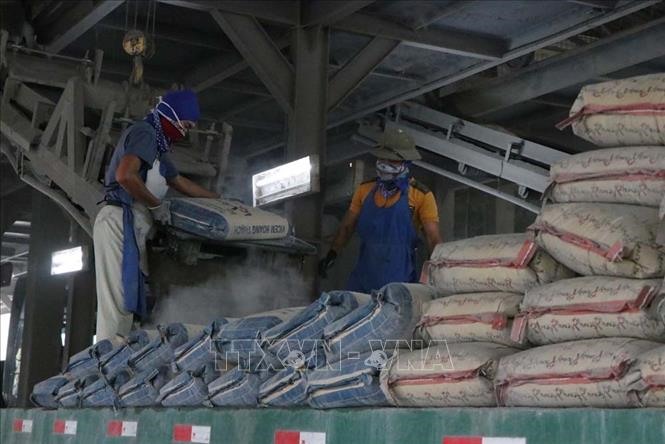Cement, clinker demand to edge up this year
 |
| A cement factory in the northern province of Hải Dương. Cement demand is expected to increase marginally this year. — VNA/VNS Photo |
This would include domestic consumption of 70 million tonnes and exports of 28-29 million tonnes, it said.
Demand grew by 19 per cent last year to 96.7 million tonnes, with exports accounting for 31.6 million tonnes after rising 55 per cent.
Export prices too shot up last year to $44 per tonne from US$38-38.5 at the end of 2017.
Export of clinker (the main raw material to make cement) was higher than that of cement since many large cement companies abroad lacked raw materials.
China’s shutting down of polluting cement plants and forcing some others to cut production had created an opportunity for Vietnamese firms to increase exports.
Last year Việt Nam exported 9.8 million tonnes of cement and clinker to China, accounting for 31 per cent of its total exports.
The ministry said two cement production lines are scheduled to go on stream this year, increasing the country’s output of 101.74 million tonnes.
Nguyễn Quang Cung, chairman of the Việt Nam Cement Association, said cement exports are expected to remain positive this year.
The main export markets in 2019 would be the Philippines, Bangladesh, China, Taiwan, and Peru, he said.
China would continue with its policy of shutting down polluting plants, reducing supply, and prices were higher there than in many other markets, thus offering Việt Nam a good opportunity to boost exports to it, he said.
But he and experts have warned there would be challenges facing Vietnamese cement exporters this year.
For instance, the Philippines has decided to impose provisional safeguard measures on cement imported from various countries, including Việt Nam, to protect the local industry, which is being hurt by rising imports.
The provisional safeguard measures will be in the form of a cash bond of 210 pesos ($4) per tonne for a period of 200 days.
Besides, its production capacity has increased, and so its cement imports would drop in future, experts said.
Cung said Vietnamese cement enterprises should keep a close eye on Chinese and global market developments. — VNS
